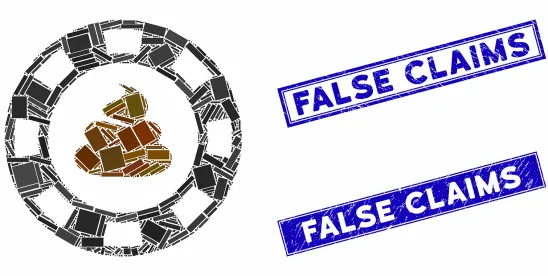A recent Ninth Circuit decision underscores why importers should be worried that they will be hit with a large government bill under the False Claims Act (FCA) to pay for newly raised duties imposed on imported products. The case concerned an importer of welded pipe fittings from China that fought antidumping duties and took its case to trial before a jury. After it lost, the District Court ordered $8,085,546.03 in single damages and then trebled it, plus costs, for an award of approximately $26 million. The importer appealed and ultimately lost again at the Ninth Circuit. The case raised complicated legal points that might have had some traction during pre-trial settlement negotiations but less so now, with the Ninth Circuit’s affirmation on June 23, 2025. United States ex rel. Island Industries v. Sigma Corporation, ___ F.4th ___ No. 22-55063 (9th Cir. June 23, 2025).
FCA Trial: Underpayment of Antidumping Duties
Jurisdiction. First, Sigma tried to avoid jurisdiction by arguing the general customs enforcement statute blocked the United States’ or a relator’s right to bring an FCA case, arguing that 19 U.S.C. § 1592 is the exclusive cause of action available to the United States. Like the FCA, § 1952 prohibits false statements or material omissions to support claims for imported goods into the United States and further provides a specific mechanism for the United States to recover fraudulently or negligently avoided customs duties. The Ninth Circuit, however, rejected Sigma’s argument that § 1592 provided the sole remedy for addressing any underpayment of tariffs. The panel also held that 28 U.S.C. § 1582, which vests in the Court of International Trade exclusive jurisdiction over “any civil action which arises out of an import transaction and which is commenced by the United States . . . to recover customs duties,” posed no jurisdictional obstacle to a relator’s False Claims Act suit in district court to recover underpaid customs duties. While recognizing the significant overlap in enforcement remedies, the Ninth Circuit held that § 1592 is not an exclusive remedy for customs violations and that administrative enforcement actions under § 1592 may proceed in parallel to an FCA case brought by a relator.
Liquidation. Second, Sigma argued that it had no “obligation” to pay antidumping duties on products it had originally described as steel couplings, arguing the Department of Commerce did not plan to collect additional duties on older entries and relying on regulations regarding the liquidation of entries. The Ninth Circuit rejected this argument, too, holding the liquidation of an entry does not preclude the government from recovering legitimately owed duties on that entry and finding an “importer cannot evade duties, wait until its entries are liquidated, and then assert based on that liquidation that its actions did not deprive the government of money.” To the contrary, the Ninth Circuit emphasized that an importer’s “obligation” to pay antidumping duties is established at the time of entry, not at the time of liquidation.
Scienter. Third, Sigma contended it lacked scienter for any false statements by arguing there was insufficient evidence for the jury to conclude Sigma acted with either deliberate ignorance or reckless disregard for the truth of its entry forms when it declared on customs documents that it did not owe antidumping duties on its welded outlets. The jury heard evidence that products from China, and steel products in particular, frequently were subject to antidumping duty orders. The jury also heard evidence that Sigma admitted it never inquired into whether the welded outlets might be subject to an antidumping order as well as whether it might owe additional duties on the goods. The jury was provided with an “ostrich” jury instruction regarding Sigma’s knowledge and found Sigma had knowingly avoided the payment of the duties. The Ninth Circuit affirmed the jury’s verdict.
Takeaways
- Customs enforcement statutes present no jurisdictional bar to a relator bringing a separate FCA action because it is a separate cause of action.
- Parallel FCA suits likely will result in significantly higher penalties than Customs generally imposes because the obligation to pay duties attached at the time of entry, and the FCA permits damages to be trebled.
- While liquidation (which typically occurs 300 days after entry) generally marks the final assessment of duties for imported products, the fact that entries may have reached the liquidation phase months after entry does not bar a relator from recovering lawfully owed duties or preclude a relator from bringing claims on those entries if the defendant made inaccurate factual assertions in the entry documentation at the time of importation.
- During a trial, the jury can be instructed that a defendant may not act like an “ostrich” and avoid learning relevant information when “simple inquiries” would have alerted the importer that it was submitting false statements or claims to the government.







 />i
/>i

